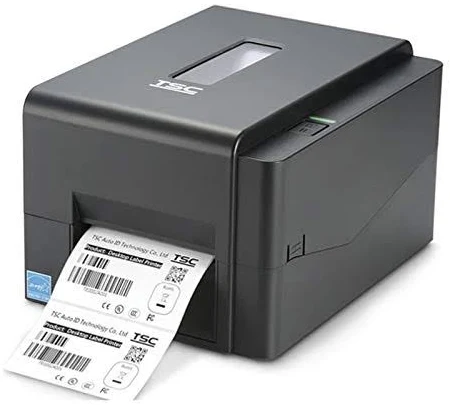In today’s fast-paced business world, efficiency and accuracy are key. Whether you’re managing a warehouse, a retail store, or an office, having a reliable label printer can dramatically streamline your operations. From organizing inventory to shipping packages or labeling files, label printers simplify daily tasks and save valuable time.
This guide explores everything you need to know about label printers — their types, uses, features, and how to choose the right one for your business.
What Is a Label Printer?
A label printer is a specialized printer designed to print adhesive labels, tags, barcodes, or product identifiers. Unlike standard inkjet or laser printers, label printers are built for precision printing on self-adhesive materials, rolls, or thermal paper.
They are essential in industries like logistics, healthcare, retail, manufacturing, and even small-business e-commerce — where clear labeling is critical for tracking, organization, and compliance.
Why Label Printers Are Essential for Modern Businesses
Label printers have moved beyond basic sticker creation. They’re now vital tools that help improve operational accuracy and workflow efficiency. Here’s why they matter:
- Enhanced Organization:
Labeling shelves, products, and storage bins helps teams find what they need faster, reducing confusion and saving time. - Inventory Control:
Barcoded labels allow quick scanning and tracking, minimizing human error and improving inventory management. - Professional Presentation:
Custom labels with company logos or branding elements give a polished, consistent look to your packages and products. - Cost-Effective:
Using a dedicated label printer reduces ink and paper waste compared to traditional printers, lowering long-term operating costs. - Adaptable Across Industries:
From shipping and logistics to healthcare specimen labeling, the versatility of label printers makes them indispensable.
Types of Label Printers
Understanding the various types of label printers will help you select the right one for your specific needs.
1. Thermal Label Printers
Thermal printers use heat to print on special thermal paper — no ink or toner required. They come in two forms:
- Direct Thermal Printers:
These print directly onto heat-sensitive labels. They’re perfect for short-term use like shipping labels or receipts. However, the prints may fade over time if exposed to heat or sunlight. - Thermal Transfer Printers:
These use a ribbon to transfer ink onto labels, producing durable, long-lasting prints. Ideal for product labeling or outdoor applications.
2. Inkjet Label Printers
Inkjet models use liquid ink to create high-resolution, colorful labels. They’re excellent for marketing materials, product packaging, and any situation where color accuracy and detail matter.
3. Laser Label Printers
Laser printers are known for high-speed output and precision. They’re ideal for offices that require large batches of labels quickly. While the upfront cost is higher, their efficiency makes them suitable for high-volume printing.
4. Portable Label Printers
Compact and battery-operated, portable label printers are perfect for on-the-go professionals such as technicians or warehouse workers. They’re easy to carry and often connect via Bluetooth or Wi-Fi for seamless mobile printing.
Key Features to Look for in a Label Printer
Before purchasing a label printer, consider the following essential features to ensure it meets your operational needs:
- Print Resolution:
A higher DPI (dots per inch) provides sharper and more detailed prints — crucial for barcodes or branding. - Print Speed:
Businesses with high label output need fast print speeds to maintain productivity without delays. - Connectivity Options:
Look for USB, Ethernet, Wi-Fi, or Bluetooth connectivity based on your setup and mobility needs. - Media Compatibility:
Ensure your printer supports the label sizes, types, and materials you plan to use — such as matte, glossy, or waterproof labels. - Software Compatibility:
Good label printers integrate smoothly with your inventory, POS, or logistics software for automated printing and database synchronization. - Durability & Build Quality:
Choose printers designed for industrial or office environments depending on usage frequency and volume.
Popular Uses of Label Printers Across Industries
1. Retail and E-Commerce:
Price tags, product labels, and barcoded packaging ensure smooth checkout and inventory control.
2. Logistics and Warehousing:
Shipping labels, shelf identifiers, and barcode tracking keep supply chains running efficiently.
3. Healthcare:
Patient wristbands, specimen containers, and medical supplies require accurate, smudge-proof labeling for safety and compliance.
4. Manufacturing:
Industrial labeling helps in quality control, part tracking, and compliance with safety standards.
5. Office Organization:
From file folders to cable labeling, label printers simplify workplace organization and record-keeping.
Label Printer Maintenance Tips
To get the best results and extend your label printer’s lifespan, regular maintenance is key:
- Clean the Printhead: Wipe the printhead regularly to prevent residue buildup that causes faded or incomplete prints.
- Use Quality Labels and Ribbons: Cheap materials may damage the printhead or jam the printer.
- Update Firmware: Manufacturers release updates to enhance compatibility and fix bugs.
- Store Properly: Keep the printer in a dust-free environment to prevent mechanical wear.
- Calibrate Regularly: Proper alignment ensures consistent print placement and reduces waste.
Choosing the Right Label Printer for Your Business
When selecting a label printer, it’s important to align your choice with your business size, print volume, and intended use. Here’s a quick breakdown:
- For Small Businesses:
A compact direct thermal printer is affordable and efficient for basic shipping and office labeling needs. - For Medium to Large Enterprises:
A thermal transfer or laser printer is ideal for high-volume, durable labeling operations. - For Creative or Branding Purposes:
Choose an inkjet label printer for full-color, high-definition prints that make your products stand out. - For Mobile Professionals:
A portable, wireless model enables quick labeling wherever you are — especially useful in fieldwork or warehousing.
Where to Buy Reliable Label Printers
When investing in a label printer, quality and support matter. Trusted technology retailers like Tecisoft offer a wide selection of top-rated label printers from leading brands. Whether you need a compact desktop model or a heavy-duty industrial printer, Tecisoft provides reliable options backed by professional guidance and customer service.
Final Thoughts
Label printers may seem like small tools, but their impact on efficiency, organization, and professionalism is significant. From automating warehouse labeling to elevating product branding, they help businesses of all sizes save time and reduce errors.
As businesses embrace digital transformation, tools that blend convenience with precision — like label printers — are no longer optional but essential. Investing in the right label printer not only simplifies day-to-day tasks but also enhances your overall business operations.
So, whether you’re running a retail store, managing a warehouse, or labeling office supplies, a reliable label printer is your partner in productivity — ensuring every detail is organized, accurate, and ready to go.



